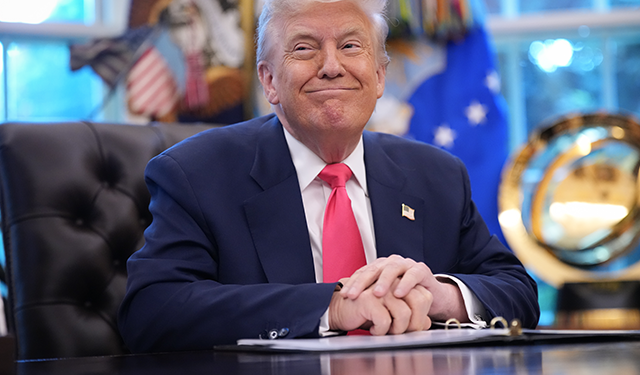This week offered a clear window into how America’s political and economic elite still struggle to reckon with Donald Trump’s influence—particularly when it comes to issues of monetary policy, trade, and the broader fight over who gets to shape the direction of the U.S. economy.
Every living former Federal Reserve chair, along with past Treasury secretaries Robert Rubin, Larry Summers, Hank Paulson, Jack Lew, and Timothy Geithner, signed onto an amicus brief that made headlines for its alarmist claims. Drafted by lawyers at Covington & Burling, the brief argued that “allowing the removal of Governor Lisa D. Cook while the challenge to her removal is pending would threaten that independence and erode public confidence in the Fed.” In other words, the nation’s top economic insiders claim that if Trump exerts lawful authority over the Federal Reserve, the entire system could unravel.
But when stripped of the lofty titles and dire language, the argument reveals itself as little more than an elite attempt to insulate unelected bureaucrats from presidential oversight. Congress already decided how this works: the law allows presidents to remove Fed governors for cause. If academics and former officials dislike this, they should push Congress to change the statute—not ask the Supreme Court to invent new protections. This is exactly the kind of end-run around democratic accountability that Americans have grown tired of.
The brief’s second layer of argument—that the removal of one Fed governor could trigger unanchored inflation expectations and send prices soaring—leans heavily on questionable economic theory. The so-called “expectations model” has long been a placeholder for gaps in forecasting, a way for economists to explain outcomes they failed to predict. It was not “inflation expectations” that fueled the worst price spikes in forty years; it was the policy mistakes of officials like Jerome Powell, who insisted inflation was “transitory” while families watched grocery and gas bills skyrocket.
And the politics of this letter cannot be ignored. Despite being pitched as “bipartisan,” the signatories are united not by economic wisdom but by their shared disdain for Trump. Hank Paulson, who steered Goldman Sachs before presiding over the Wall Street bailout, endorsed Hillary Clinton in 2016. Alan Greenspan went so far as to call Trump’s tariffs “insane.” These aren’t neutral guardians of economic stability—they’re entrenched defenders of a globalist consensus that resents challenges to its authority.
Meanwhile, real-world data continues to undermine the establishment’s favorite talking points. The Department of Commerce’s latest personal consumption expenditure index showed that durable goods prices—those most likely affected by tariffs—actually fell for the second consecutive month. Even as consumers bought more durable goods, prices dropped by nearly one percent after inflation. That’s a devastating blow to the claim that tariffs are simply a “tax on consumers.”
Further evidence shows that imports subject to tariffs have risen in price by less than non-tariffed domestic goods. Even more striking, U.S.-made goods in industries facing tariff pressure are cheaper now than they were when tariffs were announced. That’s not what the free-trade orthodoxy promised would happen—and it certainly doesn’t fit the narrative peddled by institutions that predicted tariffs would punish everyday Americans. Instead, tariffs appear to be leveling the playing field for domestic producers and offering consumers better prices at the same time.
This all comes as Democrats continue to flounder in their economic messaging. A new poll shows Republicans leading Democrats by double digits on which party has a better plan for the economy—34 percent to 24 percent. It’s not hard to see why. Democrats have no coherent economic vision to present. They oppose Trump’s policies, but they have no plan of their own to bring down electricity bills, healthcare costs, or grocery prices. Vague slogans and fearmongering are not a substitute for real solutions.
For all their criticism of Trump, the political class still hasn’t offered Americans an alternative rooted in common sense. They resist accountability, dismiss tariffs that clearly work, and cling to theories that don’t match reality. The gap between what elites warn about and what ordinary Americans see at the checkout line has never been wider. And that, more than any amicus brief or press release, explains why voters are looking elsewhere for leadership.





















order weed gummies discreet private delivery